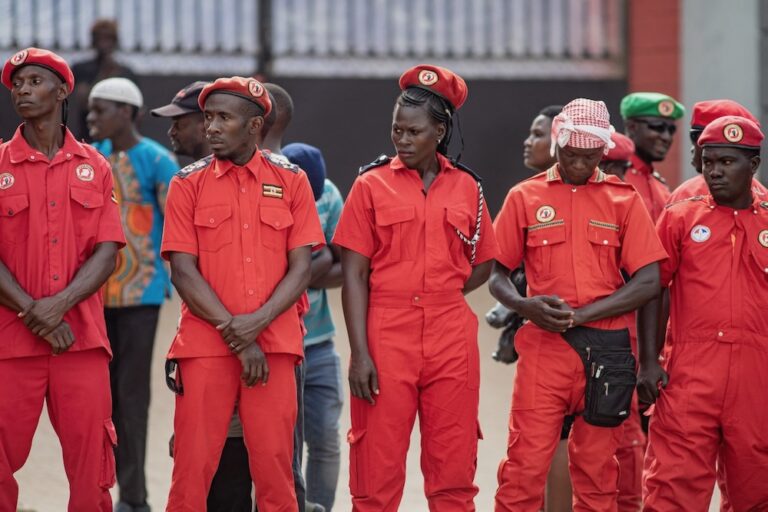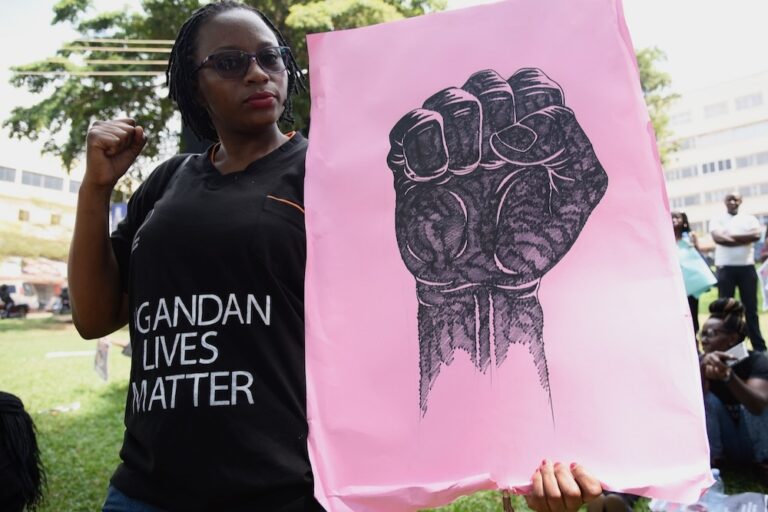President Museveni's remarks come one week after he announced a constitutional amendment that implicitly threatens journalists who cover protests.
(RSF/IFEX) – Reporters Without Borders condemns the threatening letter that President Yoweri Museveni sent to the national media on 17 May 2011, in which he accused some of them, and international media such as Al-Jazeera and the BBC, of encouraging recent “walk-to-work” protests and said they deserved to be treated as “enemies”.
The letter was sent one week after President Museveni announced a constitutional amendment that implicitly threatens journalists who cover protests. It is to be submitted to parliament during the session that began on 19 May.
Under the proposed amendment, the possibility of release on bail would be automatically banned for the first six months for anyone charged with “murder, treason, rape, defilement, child sacrifice, rioting or economic sabotage.”
The charge of “economic sabotage” could be brought against anyone whose actions are deemed to have a negative effect on the country’s economy. Reporters Without Borders fears that it could be brought against journalists who cover protests, since it could be argued that they are scaring off tourists and investors.
“We call on the government to withdraw this amendment,” Reporters Without Borders said. “The president clearly has journalists in his sights. From arrests and increased physical attacks on journalists to lynching attempts and a constitutional amendment, President Museveni seems to be turning authoritarian and behaving like a predator just days after being sworn in for a fourth term.”
The press freedom organization added: “Although it is being submitted to a parliament in which the ruling National Resistance Movement has a big majority, this constitutional amendment must not be adopted because it poses a major threat to fundamental freedoms.”
The language that the president used in his 17 May letter seems to have been designed to justify gagging the media and the use of police violence against reporters of the kind seen on 12 May, when 10 journalists were injured.
“Those who have been talking of the harmless ‘walks’ can see their mistakes,” the letter said. “The media houses, both local and international, such as Al-Jazeera, BBC, NTV, ‘The Daily Monitor’ etc. that cheer on these irresponsible people are enemies of Uganda’s recovery and they will have to be treated as such.”
During a news conference on 10 May, Museveni was very critical of the media’s coverage of the “walk-to-work” protests, especially the “Daily Monitor”‘s. “This is something I would really advise you to stop because this country belongs to Ugandans, not newspapers or radio stations,” he said. Two days later, he talked of reporting that was “wrong, or in some cases, malicious.”
It was at the 10 May news conference that the president unveiled the constitutional amendment. He went on to discuss it with members of the ruling party at meetings on 13 and 15 May.


